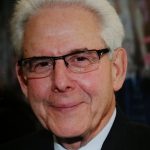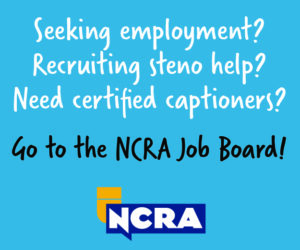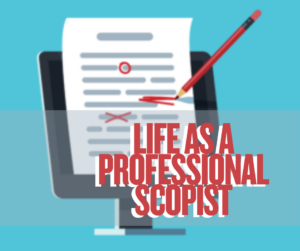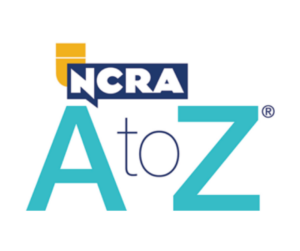
It is with great sorrow that I announce the passing of court reporter Gary Cramer of California. Gary succumbed to complications from Alzheimer’s.
With his foresight, Gary developed, drafted, and brought to the California Court Reporters Association and NCRA many initiatives and ideas, which he then pushed through to implementation based on his tenacity and fierce advocacy for the court reporting profession. Often these were ideas ahead of their time.
These are just a few of the things he accomplished:
- He developed the Transcript Reimbursement Fund law, which has paid for millions of dollars’ worth of reporter transcripts prepared for indigent civil litigants through part of the CSR license fees.
- He developed language that resulted in the passage of a law that allows privately hired freelance court reporters to appear as pro tempore reporters in civil court cases when an official reporter is not available. (Although this law passed more than 25 years ago, it was unfortunately put into use in 2010 after the layoff of hundreds of official reporters in the state, thereby providing work and keeping certified shorthand reporters in civil courtrooms.)
- He created a strategy that defeated more than 25 electronic recording bills between 1973 and 2003.
- He wrote language that requires payment for transcripts on electronic media the same as a paper transcript. (At the time, the only thing in use was 5-inch floppy disks, so this was way ahead of its time.)
- He defeated a bill that would have affected the sale of transcript copies.
- He wrote language that indemnifies the CSR for production of rough drafts and realtime.
- He negotiated an agreement with the Attorney General’s office prohibiting the sale or giving away of court reporter transcripts.
- He appeared numerous times before the California state legislature to lobby and testify at hearings in support of court reporter legislation or against legislation harmful to freelance and official reporters.
- He addressed the Judicial Council of California, where he explained how an electronic recording proposal would have negatively impacted freelance reporters and their transcript income.
- He was the Legislative Advisor for CCRA from 1979 – 2001.
- He participated in 1974-75 in Xerox Corporation’s pilot project to test and develop computer-aided transcription.
- He served on California’s Court Reporter Board for four years, with two as its chair.
- He convinced the California Court Reporter Board to conduct an experiment to test voice writers using computers on the same test as steno candidates to determine their ability and feasibility.
- He chaired NCRA’s legislative committee for several years and led the effort to amend the Fair Labor Standards Act to protect reporters.
- He developed NCRA’s Legislative Boot Camp and participated in training future leaders for nine years. This translated into the California Action Team Training.
- He was appointed by the Chief Justice of California as a member of the Reporting of the Record Task Force that resulted in a comprehensive report that addressed official and freelance reporting issues.
- He coordinated pro bono CART reporting services for the House Ear Institute, a Los Angeles-based nonprofit organization with a mission to support people with hearing loss.
- He testified on behalf of court reporter issues in the U.S. Senate and House of Representatives.
This brief list does not even touch on the work he did for the Los Angeles court reporter organizations and the unions in California.
Gary twice served as president of CCRA. He was an RPR and a Fellow of the Academy of Professional Reporters. He was the recipient of the Distinguished Service Award from both CCRA and NCRA. In addition, he was awarded a special “Innovator” award by CCRA to recognize the true extent of the unique work he did for the profession.
It is not an exaggeration to say many reporters in California would not have a job as a court reporter today but for the efforts of Gary Cramer.
Arnella Sims, FAPR, RPR, CRR (Ret.)
Los Angeles, Calif.




